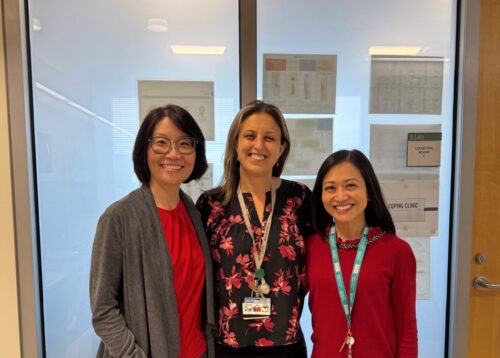Pre-Paid Cell Phones Break Barriers to Healthcare Engagement for People with Addiction
February 7, 2023

WireStock, Getty Images
With the rise of telehealth due to the COVID-19 pandemic, addiction experts must ensure that patients don't fall through the cracks because of a lack of stable cell phone access.
The Bottom Line
When healthcare workers gave patients with addiction pre-paid cell phones, it led to these patients engaging more frequently with the healthcare system via telehealth visits and phone encounters. For patients with addiction, consistent engagement with their healthcare team is key for recovery, meaning they could be treated as an outpatient and not have to escalate to a more intensive inpatient setting.
Context
People with substance use disorder (SUD) often have complex and significant barriers to healthcare engagement, including housing instability (sometimes due to shelter restrictions to people actively engaged in substance use), stigma, racism, and lack of access to transportation.
Perhaps because cell phones are highly common among people living the U.S. — approximately 97% of U.S. adults have a cell phone and 85% have a smartphone — access to a cell phone hasn’t been as significantly studied as a social determinant of health or as a barrier to healthcare access. But because it hasn’t been studied, healthcare systems may be overestimating how easy it is for patients to access telehealth services or engage with healthcare teams over the phone, even to make an appointment. Moreover, people with SUD have shown to have high phone turnover due to theft, service lapses, phone minutes depletion, and inability to use in some treatment settings.
Now, telehealth has become more common after healthcare systems looked for ways to engage with patients amid the COVID-19 pandemic. Questions remain whether telehealth is an appropriate, inclusive option for all patients, and specifically for people with addiction.
Study Objective
To determine if distributing pre-paid cell phones to patients with addiction who lacked their own would increase their engagement with healthcare services and appointments.
The Details
Healthcare workers at Boston Medical Center distributed free, pre-paid flip phones to patients with SUD who didn’t own a phone between April 2020 and February 2021. They were valued at $35, and they had internet access, text messaging capabilities, and 1,500 minutes pre-loaded. They were most commonly offered at Boston Medical Center’s inpatient addiction consult service, low-barrier bridge clinic, infectious disease drop-in center, and integrated psychiatry and SUD program. Follow-up visits from these programs typically occur every one to two weeks.
Researchers used electronic medical records to determine demographics, take into account variables, and ultimately, evaluate the changes in healthcare engagement, measured in completed in-patient and telemedicine visits, as well as telephone encounters 30 days prior to receipt of the phone and 30 days after.
Findings
Though small, researchers found a significant increased mean change in the patient’s number of telemedicine visits (0.3 visits/month) and encounters with healthcare over the telephone (0.2 encounters/month) 30 days after receiving a pre-paid cell phone. There was no change in in-person visits one month after receiving the phone.
Among the 151 substance use disorder patients who received pre-paid phones: 63.6% of them identified as male, 63.6% of them were between the ages of 30 and 49 years old, 61.6% were white, and 95.4% primarily spoke English at home. The majority (83.5%) were experiencing homelessness and had a diagnosis of opioid use disorder (88.7%). The patients commonly had co-occurring mental health diagnoses, including depression and anxiety.
Pull Quote
“With the increased use of telemedicine as a tool for healthcare delivery, lack of consistent phone access may exacerbate existing disparities further, delay care, and contribute to downstream healthcare utilization costs. Healthcare workers can help mitigate these barriers by reassessing phone access, confirming active phone numbers at each encounter, and providing pathways for in-person scheduling and visits.”
Peterkin AF, Jawa R, Menezes K, You J, Cabral H, Ruiz-Mercado G, Park TW, Kehoe J, Taylor JL, Weinstein ZM (2023). “Pre-Paid Phone Distribution: A Tool for Improving Healthcare Engagement for People with Substance Use Disorder.” Substance Use & Misuse.
Share on Social
Subscribe to HealthCity’s Newsletter
HealthCity elevates the conversation around issues of equity in healthcare. | Sent biweekly.
© 2026 HealthCity. All rights reserved.


